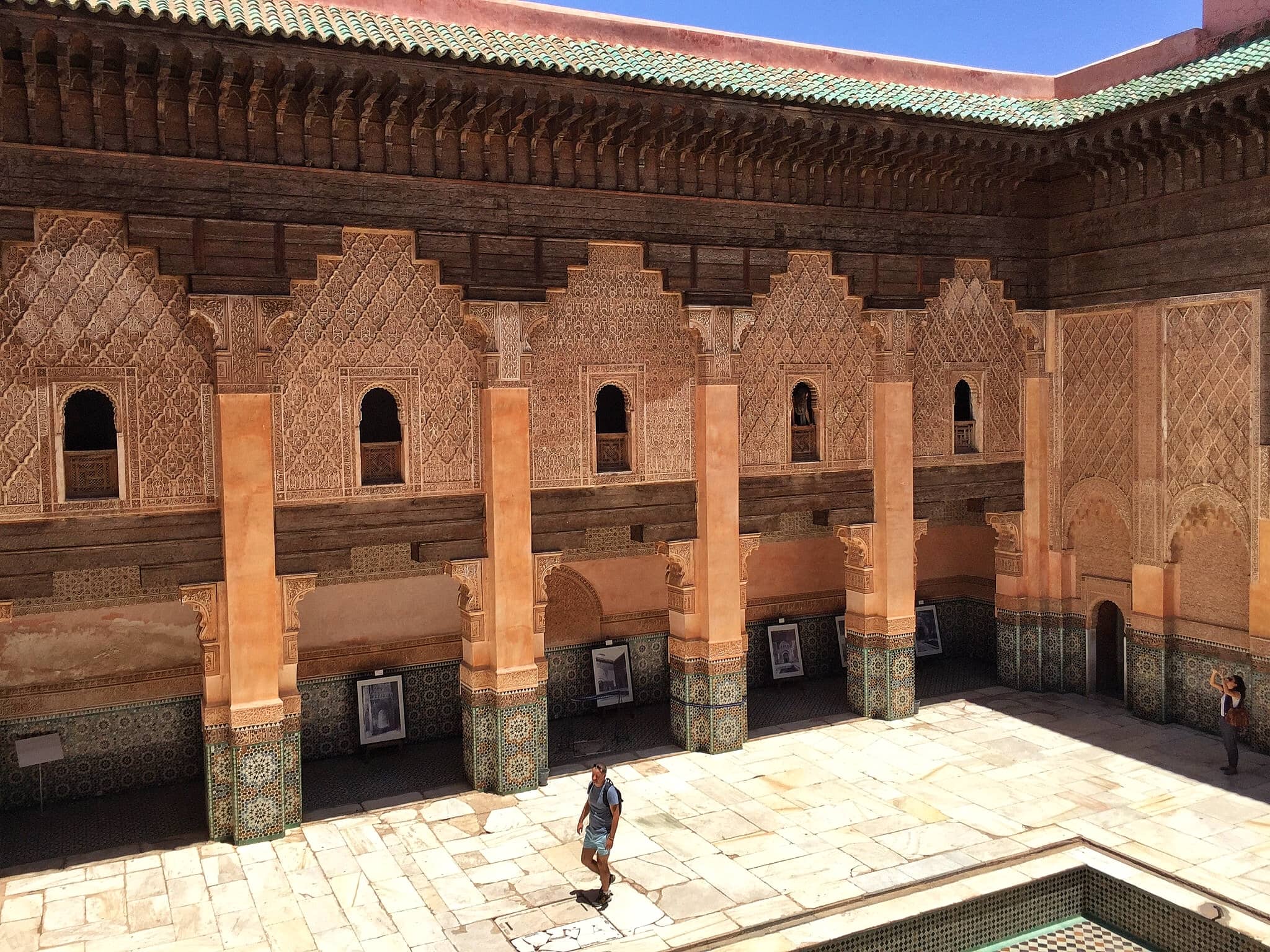
A brief glimpse of the city
What to know about Marrakech, Morocco
While Marrakech is not the largest city in Morocco (that title belongs to the port city of Casablanca), it is the most popular destination for tourists.
The city is geographically located near the foothills of the snow-capped Atlas Mountains and a few hours away from the Sahara Desert. The contrast of landscapes is as distinct as the two parts of the city.
The Medina is the old historical city, with endless labyrinths, narrow passageways, and alleyways filled with local shops and souks, or bazaars. The Djemaa El-Fna is the main square that is the highlight for many tourists and photographers.
Outside the Medina walls is the Gueliz, or Ville Nouvelle – the European district with modern restaurants, fast food chains, and internationally branded stores.
Personal story with a lesson learned
A new destination can overwhelm a traveler, especially in a place known for scamming tourists and even locals themselves. Private city tours are a stress-free resource which bring tourists to the main attractions and landmarks.
Story time:
I booked a city tour through my hotel’s concierge to see the highlights of Marrakech. Trusting the quality and standards of the hotel, I expected a luxury tour experience. Unfortunately, it was anything but luxurious.
Our private tour guide was contracted by the hotel. It started out well in a hotel car driving us to the Marjorelle Gardens and then to the Medina. Once in the Medina, we walked into the depths of dust and mud, soot and filth, stray cats, and beheaded goats bleeding and hanging from bike handles. Definitely not a luxury tour. I wish the hotel and guide had forewarned us of the details of the Medina.
Our guide was more interested in name dropping clients, such as Bill Murray and Tom Cruise. As much as I love pop culture, Groundhog Day, and Top Gun, I am more impressed with guides who share their passion for their city rather than how they climb their way up the society ladder.
Moral of the story: if you want to explore Marrakech with a decent tour of the city, the hotel and guide must be explicit about the grit of the Medina as not all luxury guests want to experience that side. And if your hotel and guide fail to do so, explain to them your preferences for luxury over dark, wet alleys and stray cats.
Lesson learned.
Highlights from a city tour
While the tour ended horrifically, there were photographic moments and cultural education from the museums.
Ben Youssef Madrasa is one of the largest madrasas in North Africa. A madrasa is an educational institution that can either be secular or religious. The school was closed in 1960 and reopened in 1982 as a historical site for public viewing. The school is attached to the Ben Youssef Mosque, and it is also known as the Museum of Marrakech showcasing local art and architecture.
Dar Si Said Museum, also known as the Museum of Moroccan Arts, is set in an old palace. The museum holds artifacts from Morocco through the ages, including wood carvings, musical instruments, and weaponry.
Outside of the Medina in Gueliz, the Majorelle Gardens is a famous destination because of the French fashion designer, Yves Saint Laurent.
The gardens and park were designed by its original owner, Jacques Majorelle, in the 1920s through 1930s. A small portion of the garden is open to the public, including a small Berber Museum briefly detailing the history of the Berbers in Morocco.
In 1980, Yves Saint Laurent and his partner Pierre Berge bought the property after falling in love with Marrakech. Following his death in 2008, his ashes were scattered in the public garden, while his body rests in his private estate.















Ben Youssef Madrasa
Kaat Benahid
Marrakech, Morocco
+212524-44-18-93
Daily 9am to 6pm
Dar Si Said
Derb Si Said
Marrakech, Morocco
+212-524-38-95-64
Wednesday to Monday, 9am to 4:45pm
Majorelle Garden
Rue Yves St. Laurent
Marrakech, Morocco
+212-524-31-30-47
Daily 8am to 6pm
Disclaimer: This article contains affiliate links to hotel booking sites. With no additional cost to you, your bookings earn me a commission if you click on the links via my website – Thank you!
Sign up for my newsletter on the sidebar for blog updates and my travel insider tips! And, check out my vlogs on YouTube!


